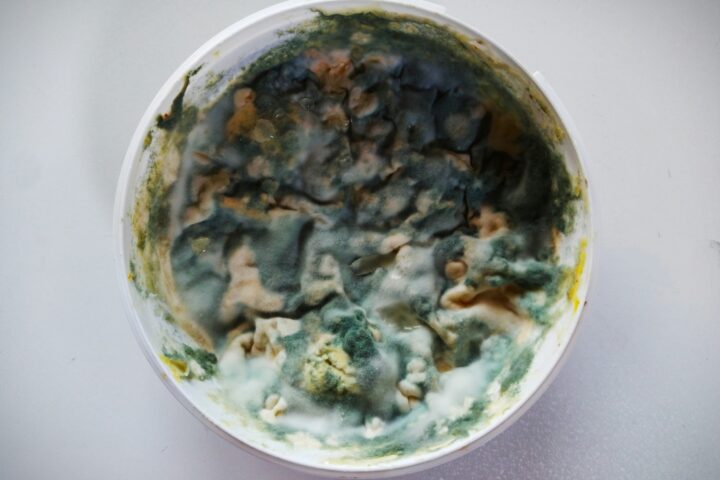Gene editing is also revolutionizing biological plant protection
Urs Niggi is an agronomist and president of Agroecology Science. Until March 2020, he was the director of the Research Institute of Organic Agriculture (FiBL). He believes that new technologies such as genome editing have the potential to make agriculture more sustainable.
Thursday, July 24, 2025
Content in German
Crops used for agriculture must adapt to changing requirements. Modern breeding has produced ingenious tools such as gene scissors, which complement traditional breeding methods in a meaningful way.
For 35 years, the use of molecular biological breeding methods in Swiss agriculture has been highly controversial. Initially, there were concerns about possible health risks to humans and animals from plant varieties genetically modified through breeding. These were replaced by fears that modified plant traits could escape from fields and spread to natural ecosystems. Superweeds were feared.
However, thousands of Swiss and international studies have largely dispelled these concerns. The argument that the use of such varieties would lead to desolate landscapes like those in the US Midwest was also unfounded. This is because Swiss agricultural policy promotes biodiversity and the preservation of a diverse agricultural landscape. Outside of agriculture, the federal government, cantons, and municipalities work together to promote high-quality landscapes.
No unnecessary differences with the EU
It is foreseeable that gene editing will lead to a large number of new varieties with improved characteristics coming onto the market. This is demonstrated by numerous scientific studies stored in the EU-SAGE database. It is also shown by a study conducted by the well-known critic Eva Gelinsky for the Federal Office for the Environment (FOEN). Gene editing is currently the most modern method in humanity's 15,000-year quest to adapt plants to its diet and that of its livestock. Wild cabbage, for example, grew on rocky sea coasts as early as the Bronze Age and was inedible. It was bred to produce cauliflower, broccoli, kohlrabi, cabbage, and other vegetables.
It is good that the Federal Council is now moving to regulate the new breeding methods. However, out of fear of criticism, its proposal creates unnecessary differences from the law that will come into force in the EU. The EU proposes that plants that have been specifically modified in only a few places in the genome, such as traditionally bred plants, should be approved. This opens up opportunities for plant breeders, including small and medium-sized enterprises.
The Federal Council's proposal does not make this exception for easier approval, even though these plants are no different. Switzerland therefore generally imposes additional requirements on all plants with regard to safety testing, consumer labeling, and the separation of the flow of goods from field to table. Professor Justus Wesseler of Wageningen University in the Netherlands has calculated that these requirements will make the new varieties so expensive that they will not be cultivated.
The Swiss regime also makes no economic sense. Dependence on EU and world trade would cause enormous costs for the feed and food industries and bloat the administrative apparatus at federal and cantonal level. Presumably, all countries that are important export partners for Switzerland will have easier approval procedures if plants modified with gene scissors do not differ from plants bred using established methods. Control for the sake of control, with no benefit for citizens.
The legislature is constantly increasing the requirements for agriculture. There should be a massive reduction in the use of chemical pesticides, and organic and mineral overfertilization should finally be reduced. Chemical weed killers are increasingly being banned. The soil structure should be improved to give earthworms, bacteria, and fungi room to thrive.
Where natural landscape elements such as hedges, tall trees, forest edges, and flower strips are missing, renaturation is to take place. Fields and meadows are to bloom again. Climate change is also taking its toll. Heat waves lasting several days bring plant growth to a standstill, and cows have to be cooled in barns under sprinkler systems.
A new era in agriculture
There is therefore a great need for agricultural crops to adapt, and this must happen quickly. Modern breeding has effective tools at its disposal to complement traditional breeding methods. And the potential of gene editing goes far beyond plant breeding. It is revolutionizing biological plant protection. And thanks to precise fermentation, yeasts and bacteria can produce proteins, fats, and flavors that are ideal raw materials for purely plant-based dairy, meat, and egg products without using arable land or grassland.
We are therefore at the beginning of a new era in agriculture and nutrition. Perhaps this will also enable us to return to the limits set by our planet as the population continues to grow. However, agriculture is a complex system and therefore much more than just plant breeding. There will certainly be many promises that cannot be kept, but the existing opportunities must be seized.
Urs Niggli is president of the Institute of Agroecology and was director of the Research Institute of Organic Agriculture (Fibl) for many years.
This article was first published in the NZZ on July 23, 2025.
Kindly note:
We, a non-native editorial team value clear and faultless communication. At times we have to prioritize speed over perfection, utilizing tools, that are still learning.
We are deepL sorry for any observed stylistic or spelling errors.
Related articles

Pesticides in Green Smoothies
After countless recipes for Christmas cookies, festive roasts and cocktails, the advice on losing weight, detoxing and beautifying oneself now takes centre stage. Most of it is sheer nonsense.

Natural Toxins: An Underestimated Risk in Our Food
Safe food cannot be taken for granted. While chemical substances are often the focus of public criticism, reality shows that the greatest risks to food safety are of natural origin. Recent recalls of infant food products illustrate how insidious bacterial toxins or moulds can be.

Herbal Teas: Making You Sick Instead of Slim
Plant protection products are frequently the focus of public criticism. Far less attention is paid to the fact that natural ingredients in teas and dietary supplements are also biologically active and can pose health risks.

Why Strict GMO Regulation Stifles Innovation
New breeding techniques such as CRISPR-Cas are considered key to developing resilient crops, stable yields and reducing the need for plant protection products. ETH professor Bruno Studer warns that overregulating these technologies strengthens precisely those large agricultural corporations that critics seek to curb, while excluding smaller breeders and start-ups from the market.

